Today, Latin America and the Caribbean stand at a turning point to shape a new sustainable economy. We are presented with a momentous chance to embrace the sustainability revolution as the development opportunity of the 21st century. This journey goes beyond protecting the environment and reducing carbon emissions: it’s about creating jobs, improving public health, reducing the gender gap, boosting education, and building a prosperous, climate-resilient, and just economy while ensuring no one is left behind.
The challenges are not easy, and the impacts of climate change are already upon us. 2023 was the hottest year on record, approaching 1.5°C above preindustrial levels. Global warming brought devastating heat waves, floods, wildfires, and hurricanes. So far, in 2024, January has been the hottest January on record. So, how do we turn this around?
Our region plays a significant role in solving the global climate change challenges, and we could also receive huge benefits -socially and economically speaking- if we shift to carbon neutrality. We already get 30% of our energy from renewable sources, doubling the world average. We are home to two-thirds of the world’s lithium and 38% of copper, products that are key to advancing the green transition. Likewise, we produce enough food to sustain 1.3 billion people, and contribute approximately 40% to the net global food exports.
We recognize that every country is unique and requires tailored solutions, as a one-size-fits-all approach may not be suitable. That is why the IDB is working with countries in the region. Last year we showcased our commitment at COP28, and this year, with a Biodiversity COP in Colombia, setting the stage for COP29 in Baku and COP30 in Belem next year, the IDB is at the forefront, dedicated to reinforcing bold climate, biodiversity and sustainability action. Let’s see what 2024 will bring to the IDB’s climate and biodiversity agenda:
From Climate Policy to Climate Action
We closely collaborate with 20 countries in the region to tailor policy transformations by supporting their Nationally Determined Contributions (NDCs) and long-term strategies (LTSs) to address climate change effectively.
Through policy loans, guarantees, and innovative research, the IDB remains dedicated to being the preferred partner for countries in the region. In 2023, our efforts delivered significant outcomes. For instance, in Chile, we supported the implementation of the Climate Change Law Framework. Similarly, in Colombia, we aided in the formulation of the National Climate Change Adaptation Plan. Costa Rica received support for the National Plan for Decarbonization and Transition alongside the implementation of the National Adaptation Plan. In Barbados, we also developed the first Country Strategy integrating climate challenges and risk transitions. The list goes on, but these initiatives exemplify our commitment to designing and implementing comprehensive climate strategies, laying the groundwork for low-carbon and resilient investments and policy reforms.
What to expect in 2024?
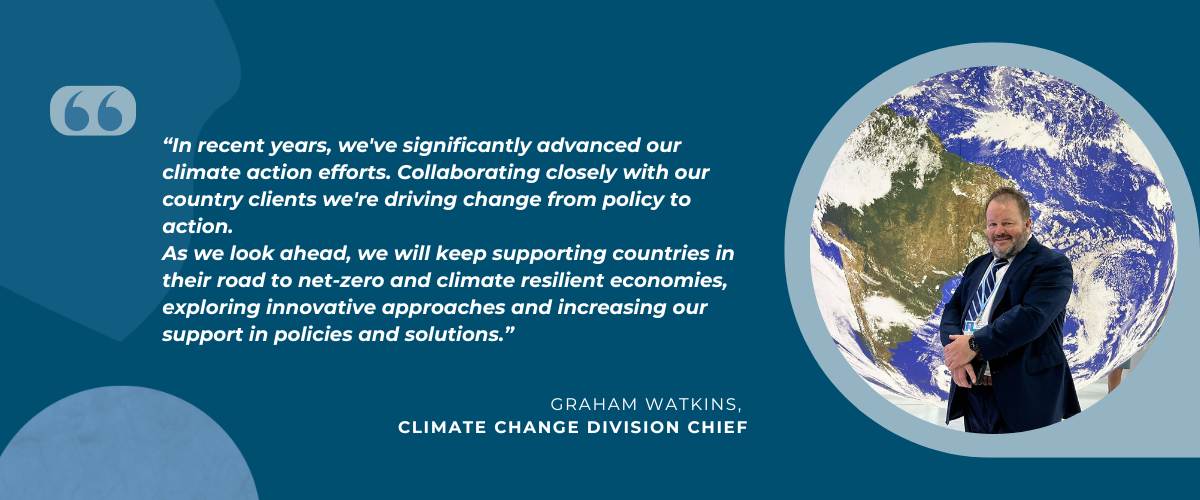
Tools and Solutions to Advance Climate Action While Achieving Sustainable Economic Growth
The IDB also supports the region by generating knowledge through innovative research to provide tools, solutions, and policies to advance climate action and achieve sustainable economic growth. We have produced numerous cost-benefit studies of transitioning to net-zero, green fiscal policy recommendations and a just transition toolkit for the region.
For instance, our latest findings indicate that addressing climate change is a growth opportunity for Latin America and the Caribbean countries. Indeed, the economic and social benefits of decarbonization far outweigh the costs. If we implement the right fiscal policies, the transition could create 15 million net new jobs by 2030 and provide $2.7 trillion in net benefits by 2050. These benefits could come from fuel savings, pollution reduction, health improvements, enhanced safety, productivity gains, and energy security. The potential for job creation could expand to different sectors, including plant-based food production, renewable energy, construction, and manufacturing.
However, it’s crucial to acknowledge that such transitions will inevitably have winners and losers. That is why we have also published a toolkit to help countries reduce and compensate the negative impacts the transition to net-zero will bring while also ensuring that the benefits are equally distributed.
What to expect in 2024?
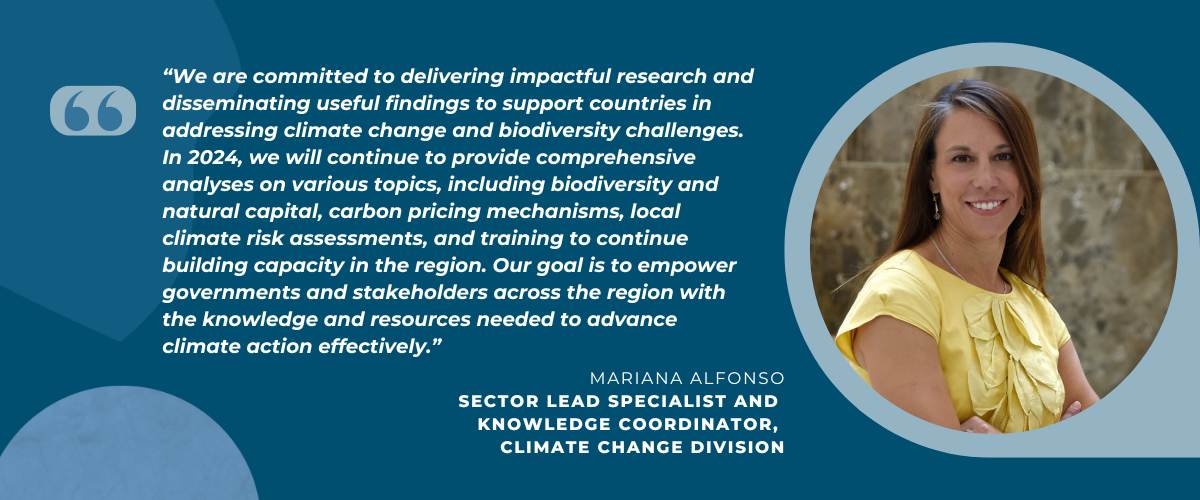
Amplifying the Role of Ministers of Finance in Addressing Climate Change
In recent years, there has been increasing recognition of the role that Ministers of Finance play in driving climate action. This acknowledgment led to initiatives such as the Regional Climate Change Platform of the Ministries of Finance and Economy launched in 2022 by the IDB and ministries across the region. As the technical secretariat of this platform, the IDB has worked closely with participating governments to create a collaborative space for enhancing governance and fostering knowledge exchange on green fiscal matters.
Looking ahead to 2024, we expect a more significant impact by strengthening the leadership of Ministers of Finance to address climate change. The ministries will keep working in mainstreaming climate change and biodiversity in their agendas, allowing regional and local governments to enable climate action and achieve Paris Alignment and biodiversity goals. The platform itself will continue to serve as a conduit for sharing best practices and innovative approaches in areas such as taxonomies, carbon markets, green public investment, and financial management. By facilitating dialogue, exchanging experiences and collaboration, we aim to empower Ministers of Finance to drive impactful climate policies and initiatives that contribute to sustainable regional development.
What to expect in 2024?
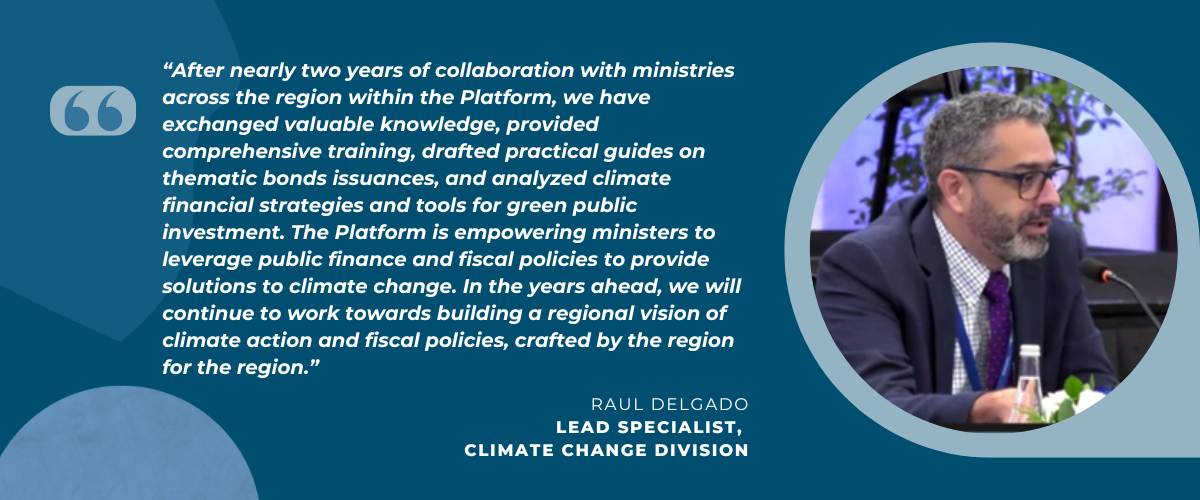
From Net-Zero to Nature-Positive
Our existence depends on nature, yet human activities drive an existential biodiversity crisis. Nature provides essential goods and services for human well-being and economic prosperity, including water, food, timber, biofuel, and medicines. Likewise, it offers indispensable ecosystem services like nutrient cycling, oxygen production, flood control, hydrological balance, and climate regulation.
To effectively address the biodiversity crisis, we must integrate natural capital and biodiversity considerations into our decision-making processes. This transformation requires a fundamental reevaluation of how we assess, value, utilize, conserve, and equitably distribute the benefits derived from nature. Our new Institutional Strategy recognizes Latin America and the Caribbean as a nature powerhouse, and our economies heavy reliance on natural capital. Moving forward the IDB will continue to promote the transition to nature-positive economies.
The IDB is at the forefront of the biodiversity agenda among the Multilateral Development Banks, co-chairing the nature working group. In the region, we are actively supporting projects aimed at mainstreaming natural capital across ministries, supporting policy coherence, integrating nature-based solutions, developing robust performance indicators and reporting systems, and developing innovative financing solutions, including debt for nature conversions. We are also supporting Colombia in the planning for the upcoming Biodiversity COP16 in Cali, which will be a significant moment to showcase the region’s innovation.
What to expect in 2024?
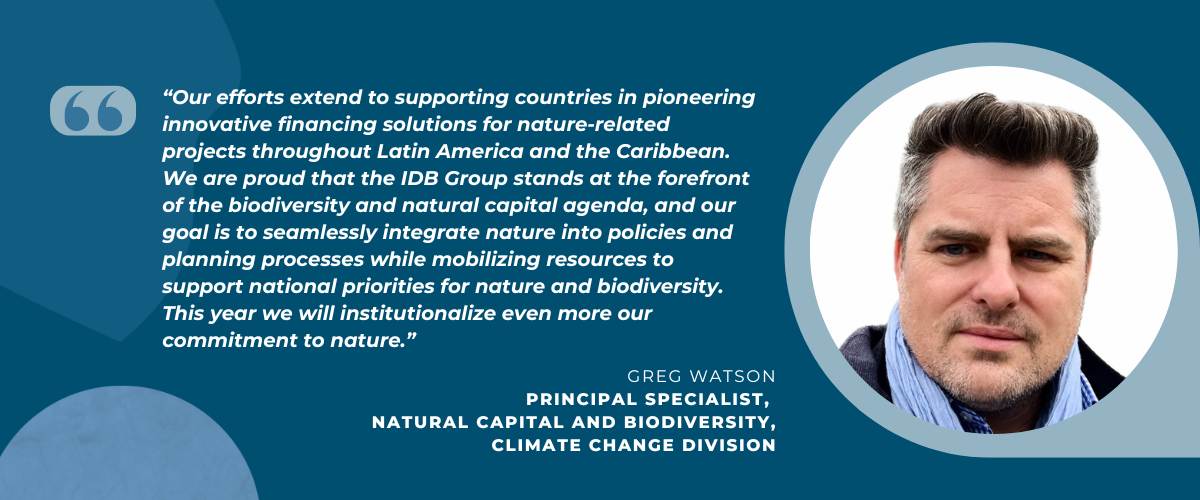
Scaling up and Pioneering Concessional and Innovative Financing
At COP28, we announced we will triple direct and mobilized climate financing for the region to $150 billion over the next decade. As an MDB, we will continue to facilitate access to concessional and grant climate finance. In 2023, external donors approved over US$400M of concessional finance.
We have forged pathways with international climate funds such as the International Climate Initiative of the German Federal Government (IKI), the Global Environment Facility (GEF), the Climate Investment Funds (CIFs) and the Green Climate Fund (GCF). With the CIFs, we have been a partner of choice in Colombia, Brazil, Costa Rica, the Dominican Republic, and Honduras. We have also secured additional grants financed from partners like the United States, the United Kingdom, France, and Canada to support biodiversity and climate action.
Innovative financing tools are changing the game. IDB CLIMA, for instance, offers borrowers a 5% grant when nature and climate objectives are met. Debt conversion initiatives, such as those in Ecuador and Barbados, as well as the creation of sustainable-linked bonds in Uruguay, are helping reduce costs and conserve the environment. We are also implementing Resilient Debt Clauses, protecting The Bahamas, Barbados, Honduras, and Ecuador with loans.
These projects in Ecuador, Barbados, and Uruguay have earned international recognition, reflecting our efforts to innovate and deliver innovative solutions in the region.
What to expect in 2024?
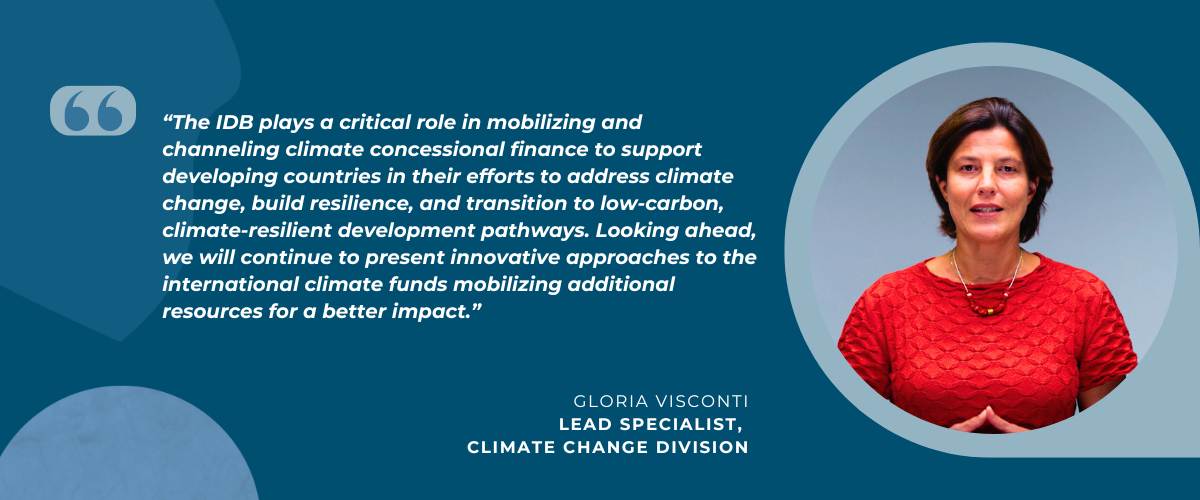
As we embark on this 2024, and look ahead, the imperative is evident: we must forge a sustainable, climate-resilient, just, and new economy in Latin America and the Caribbean. By embracing innovation, collaboration, and sustainable financing, we can shape a future where our region moves towards a new economy. We have the tools, we have the information, and we know it is possible with collaboration. The time for action is now, and together, we can create a prosperous, inclusive, sustainable, and climate-friendly future for all.

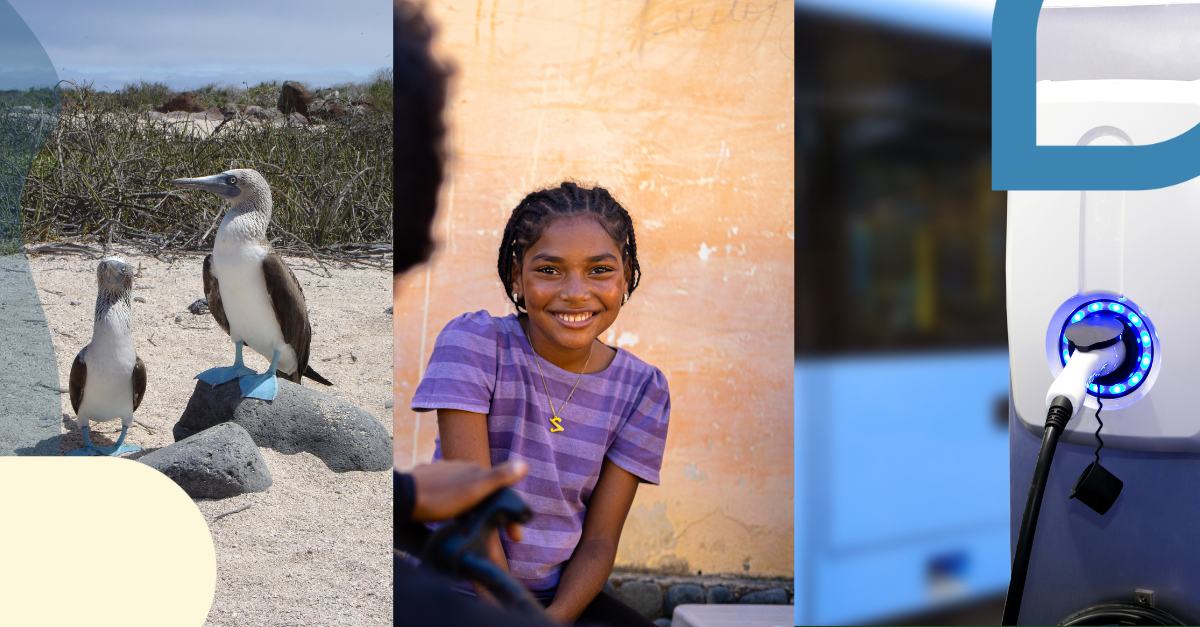
Leave a Reply